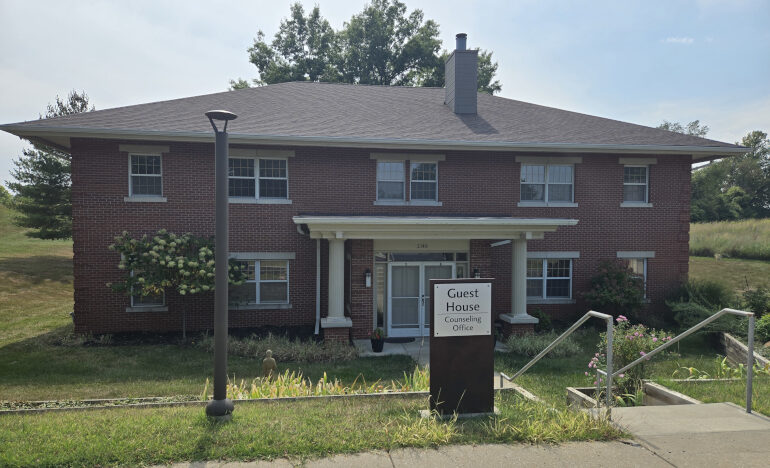Adversaries Needed?

An Assembling God’s Puzzle video
By Fr. Garry Richmeier, C.PP.S.
It is hard to find a movie or book plot without a conflict between the good guys/gals and the bad guys/gals. We love it when good overcomes evil, and all is well again. Of course we need the villains to be totally bad, with no shred of decency, if we are to feel good about them being done away with in some fashion. So movies tend to go to great lengths to portray the bad people in exaggeratedly evil terms.
Movies are really fantasies, but they draw us in and invite us to be part of the plot in our imagination. And our imagination makes it feel real. So we feel like we are right there beside 007 as he blows up the evil minions of the crime organization called SPECTRE.
Plots like this entertain us because this is how we would like real life to be. But in real life there are no totally good heroes and no totally bad villains. Life is full of regular human beings, who are a mixture of good and bad. That feels uncomfortable because we can’t be totally certain when dealing with others regarding whether or not they are trustworthy. And it is especially uncomfortable to have to face the fact that we ourselves have good and bad in us. So to clarify things (at least in our mind), we create an imaginary movie where we are the hero (right, good, holy, etc.) and people who are different are the villains (wrong, bad, unfaithful, etc.). This is a way we try to ignore or deny the bad stuff inside us (which feels awful to look at), and it allows us to dismiss any good in the “villains” and to do awful things to them. In this scenario, we actually need adversaries so we can feel good about ourselves.
Needless to say, this dynamic is almost a part of our DNA as humans. It is difficult to determine how this gets passed on to each succeeding generation, but it is a piece of the human puzzle that we haven’t dealt with well. It has been the cause of war, prejudice, political gridlock, religious persecution, political and religious assassinations, economic inequality, and any other ways we find division as humans.
Operating in this way may be close to being part of our DNA, but unlike our DNA, there are ways we can change it. But only if we consciously do the hard work, with consistency, persistence, intention, and courage.
One thing that is needed if we are to change is what many therapists call “facing your demons.” It means to recognize the tendencies and attributes in ourselves that are unpleasant, or even ugly. The purpose is not to condemn or berate ourselves, but to remind ourselves that we are like every other person and are in no position to judge or denigrate others. It also allows us to keep an eye on those negative things in ourselves so that we can keep them from controlling our behavior. Unnoticed or unchecked, those negatives can take over when we least expect. On the flip side, viewing ourselves realistically in this way enables us to avoid the awful feeling of thinking we are bad or flawed, because realize we are like everyone else. So we don’t have to cut down others in order to feel good about ourselves.
Another part of this work is to shift our view of others. If we can see both the good and bad in ourselves, we are better able to see the good and bad in others. This makes it much more difficult to believe that others are the totally bad villains that need to be destroyed in some way. Looking at them realistically, they become much more like ourselves, with the same strengths and weaknesses, joys and fears, hopes and dreams, etc. When we can see more clearly that others are more like ourselves than they are different, it creates more of a bond rather than a division. This means less violence we inflict upon each other.
This type of work is hard, and not for the weak of heart. But when one person does the work, it invites the next person to do the work also. That is how we change the human movie script that seems to hold us captive.
All of the videos in this series can be found here: Assembly God’s Puzzle.
Never miss an article published on the Renewal Center website: Sign up to receive our newsletters.
[Fr. Garry Richmeier, a Precious Blood priest and spiritual director, holds a Master’s of Divinity Degree from St John’s University in Collegeville, Minnesota, and a Master’s of Counseling Psychology degree from the University of Missouri-Kansas City. He is a licensed professional counselor and a licensed marriage and family therapist.]
Photo ID 87071991 © Gearstd | Dreamstime.com — Adversaries Needed? — An Assembling God’s Puzzle video
We’d Like to Hear from You!
We’d like to know what you think about this article. Send us a comment using the form below. Do you have a suggestion? Is there something you want to learn more about? Send us a note.
Related

Can You Help Support Our Guest House Mission?
The Missionaries of the Precious Blood, the religious society of priests and brothers who sponsor Precious Blood Renewal Center, are asking for donations to update and renovate the Renewal Center’s Guest House.

Knowing your ‘love language’ key to healthy relationships
Family Matters by Lucia Ferrara
How you express love in a relationship, this is your love language, differs from person to person. Knowing what your and your partner’s love language is makes for a healthy, more fulfilling relationship.
Categories
Assembling God's Puzzle Coffee with Padre Cooking & Spirituality Encounters of the 4th Kind Family Matters Reflections on the Eucharsitic Prayers Spiritual Resources Taize Prayers The Contemplative Life Traveling with Pilgrims of Hope Uncategorized Videos Week of Prayer for Christian Unity When you need a little help
